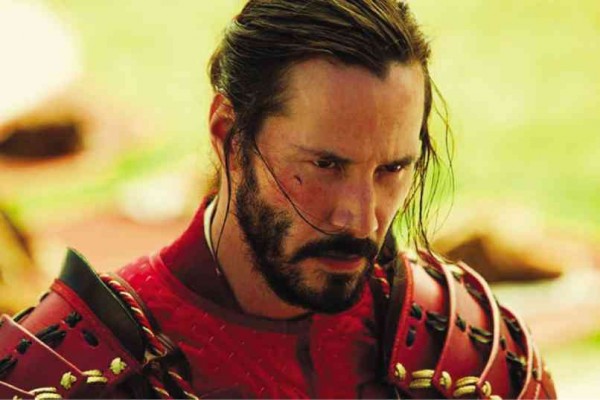We went to a screening of Carl Rinsch’s “47 Ronin” expecting the worst from Keanu Reeves’ first big-budget starrer since 2008’s “The Day The Earth Stood Still”—and knowing that social media has a way of blowing things out of proportion. Is it as bad as they say it is?
While the $200-million production does have its flaws—not the least of which are its dark, 3D visuals that had us squinting from beginning to end—the film has turned out to be an engaging actioner that astutely utilizes the bushido code and the seven virtues it lives by, sprinkled with 18th century Eastern mysticism to keep its entertaining brew of unsung heroes, warriors, witches, dragons and demons eventful.
The film creates a parable based on the true story of the 47 masterless samurai who sought to avenge the death of their daimyo or feudal lord, Asano Naganori (Min Tanaka), at the hands of the treacherous Lord Kira (Tadanobu Asano), who intends to consolidate his ill-gotten gains by marrying his disgraced rival’s daughter, Mika (Ko Shibasaki).
Abandoned son
At the heart of this latest, Hollywood-embellished retelling is half-breed Kai (Reeves), the abandoned son of an English sailor and a Japanese peasant girl who is raised by demons he later runs away from. He finds himself in the household of Lord Asano, and falls in love with his master’s daughter.
Like fish out of water, Kai struggles to find acceptance from his peers. He grows up as an outcast because of his tisoy features (his story would surely have had a happier ending had he migrated to the land of mixed-race-loving Pinoys). He is later sold into slavery and taken to a Dutch colony, where he reinvents himself as a fierce gladiator.
Florid plot premise
The florid plot premise promises action-packed sequences and a quirky mix of exotic characters—but, in its effort to be respectful to the ancient ways of the Shogun and the samurai, it ends up turning its characters rigid, humorless, and overburdened by capricious spite.
Another foible that confounds the exposition is the introduction of the shape-shifting witch (Rinko Kikuchi) who has all the goofiness and bad tics of a nasty telenovela contravida: Her evil machinations, off-the-wall theatricality and transformations—from a snooping white fox to a fire-breathing dragon, and back—are more annoying than menacing.
Despite its excesses, the film manages to engage viewers’ attention as it spins a far-out yarn about the forbidden love of Mika and Kai—who, aware of their limited time together, swears to search for his lady love through “1,000 worlds and 10,000 lifetimes.”
More than by its star-crossed lovers’ romantic exhortations, we are drawn to the idea of seppuku (ritualistic suicide) as a form of capital punishment for a samurai who commits serious or shameful offenses against his people—can you imagine its “cleansing” effect if applied to our government?
Another reason why the movie is worth watching: The transfixing presence of Keanu Reeves, who looks as youthful as he did in 1999’s “The Matrix,” sans the stretched out, plasticine features of many of our “overpreserved” actors—keep in mind that the guy will turn 50 in September! Would that other veteran actors could remain as naturally boyish, lithe—and light on their feet.
